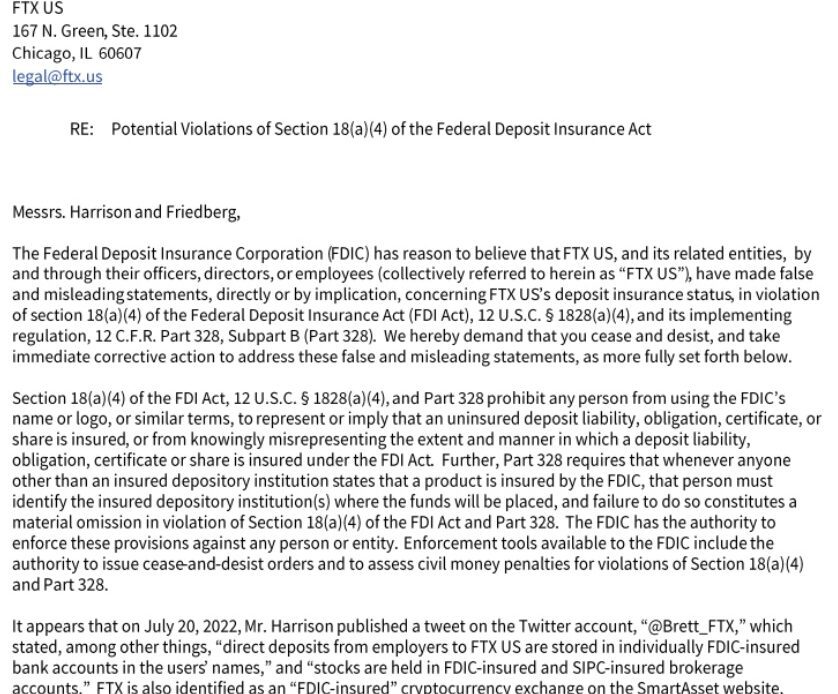Searching for more evidence that self-custody of your cryptocurrency holdings beats a centralized manager? Look to the latest action by the Federal Deposit Insurance Corporation (FDIC).
The agency sent a letter to FTX Exchange this month — along with four other entities — that included a cease and desist order for “false and misleading statements.” Namely, it accused the exchange of falsely implying that user funds were FDIC-insured.
It could have turned into an ugly situation if customers expected — but did not receive — a certain level of protection in the event of catastrophic failure. It’s difficult to ascertain how heavily the guarantee factored into the adoption of FTX services, but the firm enjoyed a record-breaking year in 2021 with revenue growth of more than 1000%.
Ultimately, the incident serves as an endorsement of self-custody, because it reminds us that exchanges can only protect user funds as far as their pockets allow them. Empowering consumers to hold their own funds on ideally cold wallets significantly reduces the chance their funds will be lost to a company’s insolvency, like in the case of Celsius, or even to a hacker gaining access to wallets held by a central entity.
Self-Custody isn’t perfect, but it can be better than the alternative
Those who say self-custody is fraught with danger would be right. Retail investors cannot be expected on a widespread scale to properly manage and protect their funds in a wallet owned solely by them, and many in fact prefer the oversight from a seemingly too-big-to-fail central exchange.
Even experienced crypto investors and holders can send tokens to the wrong address by mistake, or even in some cases face issues with technical glitches on self-custody wallets. If mainstream adoption is the goal, this isn’t even close to being a safe way to exchange value.
Related: Deposits at non-bank entities, including crypto firms, are not insured — FDIC
It’s a catch-22 situation. Money isn’t inherently safe when it’s held by scarcely regulated central entities known for suffering hacks and always being vulnerable to the possibility of executives running away with user funds.
Cryptocurrencies, at their very core, are about independence and moving away from the financial establishment that has influenced monetary policy for a very long time. So, the industry is crying out for a solid self-custody solution that resolves the associated dangers.
Last month @Brett_FTX tweeted that you can…
Click Here to Read the Full Original Article at Cointelegraph.com News…
